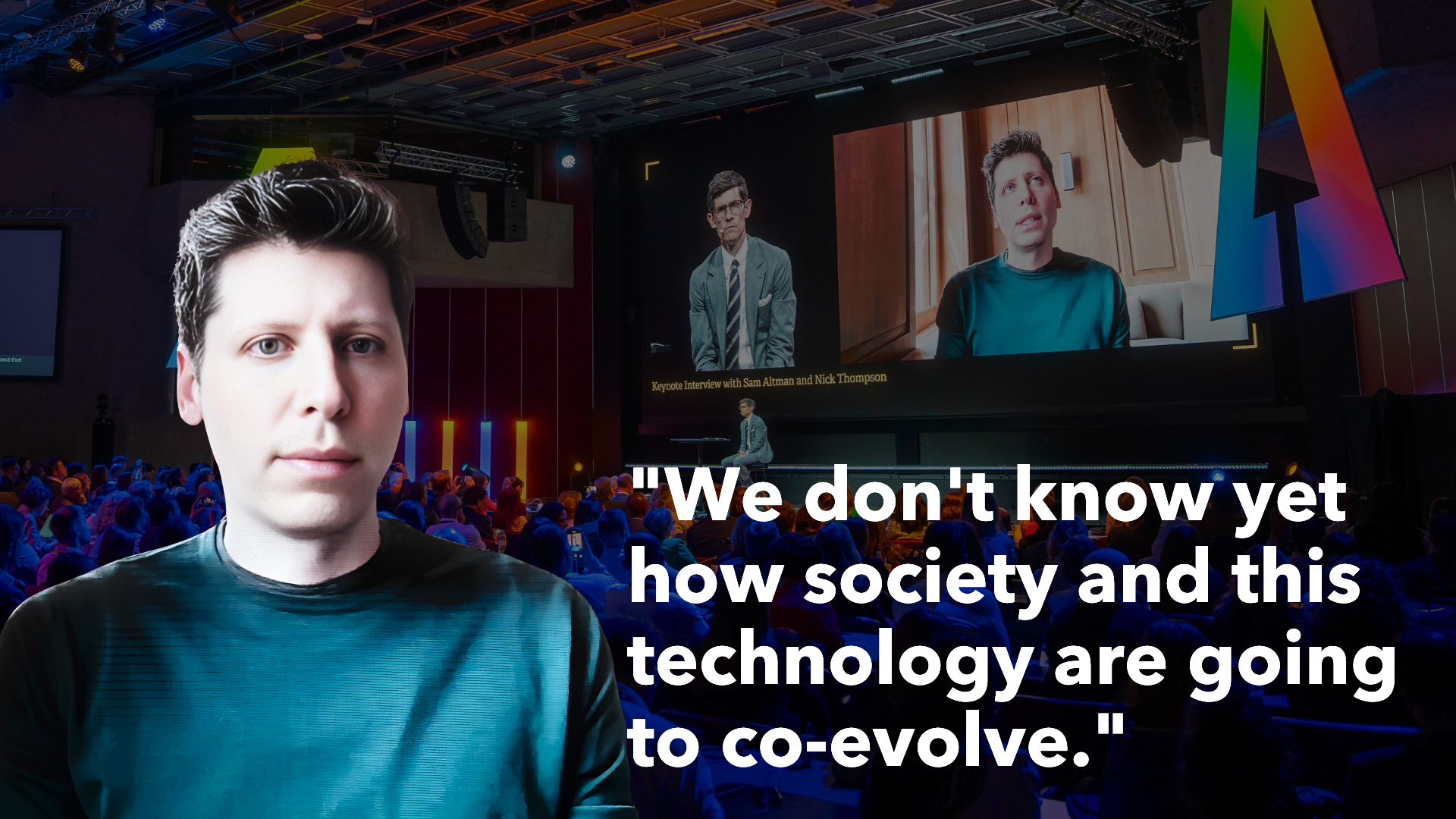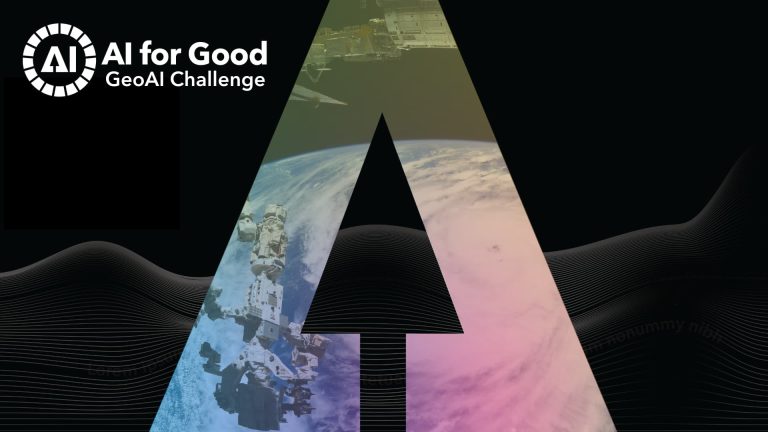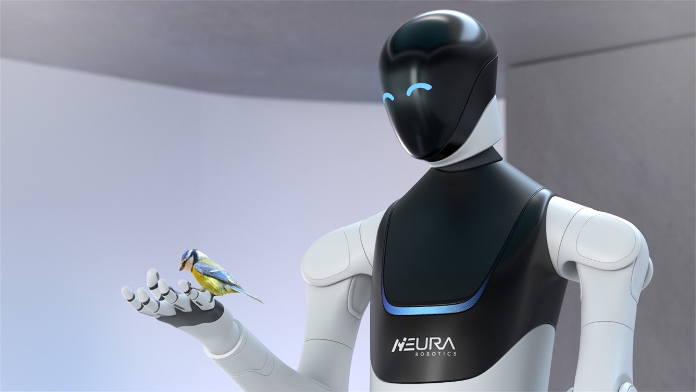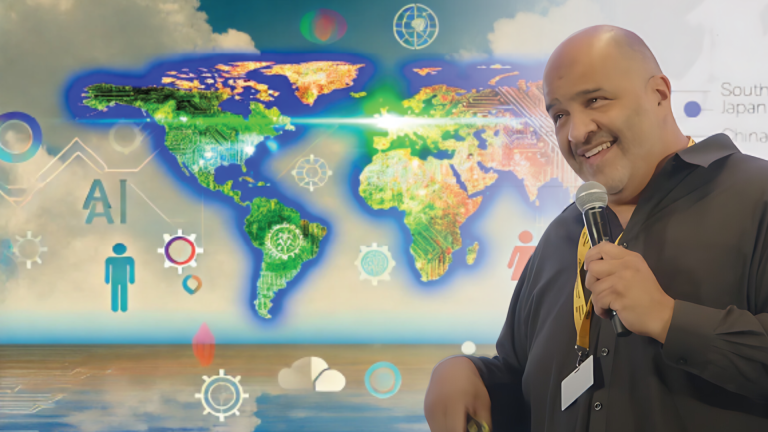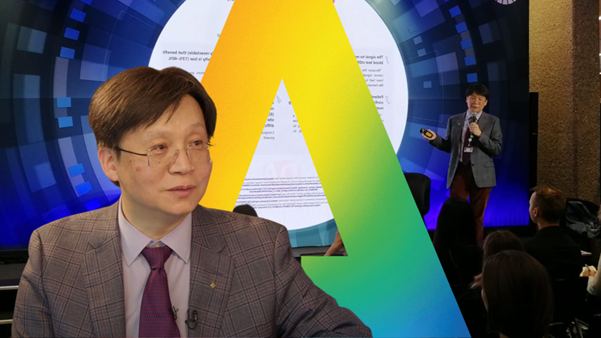“Sam Altman’s Vision: Revolutionizing the Future of Society through AI and the Social Contract”
AI has transcended the realm of science fiction and has become a revolutionary catalyst that is transforming industries, economies, and everyday experiences. As the pace of AI advancements continues to accelerate, the world faces a crucial juncture, navigating immense opportunities alongside considerable challenges. During the recent AI for Good Global Summit 2024, Sam Altman, CEO of OpenAI, delivered an insightful presentation on the current landscape and future outlook of AI, focusing on its impacts, governance, and the ethical dilemmas that arise with its adoption. The keynote discussion was skillfully moderated by Nicholas Thompson, CEO of The Atlantic.
Altman commenced by examining the immediate influence of AI on productivity, spotlighting software developers as key beneficiaries. He observed that AI tools have dramatically streamlined their workflows.
“People can accomplish their tasks significantly quicker, more effectively, and concentrate on aspects they prefer,” Altman remarked. “Similar to other technological innovations, AI integrates into workflows, and it swiftly becomes hard to imagine functioning without them.”
He highlighted that this boost in efficiency is likely to permeate diverse sectors, from education to healthcare. Altman stressed that AI is already making marked progress in enhancing productivity and efficiency, a trend that is anticipated to persist, offering the first tangible benefits as a result of AI integration.
Nonetheless, with significant power comes considerable responsibility. Altman was candid about the potential adverse effects of AI, expressing particular concern regarding cybersecurity, which he identified as a paramount area of focus.
“Cybersecurity… could pose a serious challenge,” he cautioned, emphasizing the necessity of vigilance as AI technology progresses.
This balanced viewpoint illustrates the multifaceted nature of AI’s impact: while it holds immense advantages, it equally presents major risks that demand careful management.
As OpenAI prepares for the training of its next generation of large language models, Altman was queried by Thompson about addressing language equity. He recognized the performance disparities among different languages and reaffirmed OpenAI’s dedication to bridging this gap.
“We are genuinely pleased with GPT-4… which performs admirably across various languages,” Altman noted. “Our future models will be even better, and we aim to cover at least 97% of individuals in their primary language.”
He underscored the significance of inclusivity and equity in the evolution of AI models, ensuring that the benefits of AI reach a global audience.
When discussing anticipated improvements in the new models, Altman predicted notable advancements but remained prudent about setting unrealistic expectations.
“The most beneficial approach for us… is demonstrating rather than simply telling. We will strive to conduct the best research possible and responsibly unveil our creations. I expect some areas will see tremendous improvements, while others may not be as transformative,” he stated, highlighting the unpredictable nature of AI progress.
This tempered optimism represents a realistic stance on AI innovation, acknowledging both its vast potential and inherent limitations.
The dialogue also explored the utilization of synthetic data in training AI models. Altman acknowledged the experiments involving synthetic data but stressed the importance of using high-quality data.
“As long as we can obtain sufficient quality data for model training… or enhance our training efficiency… this approach is acceptable,” he remarked.
He expressed hope that forthcoming models could learn more effectively from smaller datasets, alleviating concerns about the potential “contamination” of AI systems by synthetic data. This emphasis on data quality is critical, as the efficacy of AI models heavily relies on the integrity of their training datasets.
AI safety remains a cornerstone concern for OpenAI. Altman discussed the challenges related to interpretability in AI models, admitting that, despite advancements, much is still unknown.
“Ensuring safety requires a comprehensive approach,” he explained, underscoring the intricacies involved in guaranteeing that AI systems are both effective and secure.
He acknowledged that a deeper understanding of AI at a granular level is an ongoing journey but emphasized the significance of continued progress in this realm. Altman also referenced a recent breakthrough related to the Golden Gate Bridge as a pivotal moment in grappling with interpretability questions.
When asked if a balance between capabilities and safety should be prioritized, Altman contended that a simplistic division of the two is misguided.
“One must design an integrated system that efficiently and safely reaches its objectives,” he clarified, likening the endeavor to constructing an airplane that harmoniously balances efficiency and safety.
Using the airplane analogy, Altman illustrated the intertwined relationship between AI capabilities and safety. He conveyed that the design of AI should mirror that of an airplane, where both efficacy and safety are seamlessly merged. Just as an airplane must ensure safe and swift transport of passengers, AI systems must be crafted to execute tasks effectively while preventing harm. This holistic approach ensures that safety is a foundational element of AI innovation, rather than an afterthought.
The governance of AI is becoming increasingly vital, particularly as AI systems expand in influence and application. Altman responded to critiques surrounding OpenAI’s governance model by referencing the organization’s actions and the robust safety measures embedded within their models.
“You must evaluate our actions, including the models we have released and our ongoing efforts,” he asserted, defending OpenAI’s history.
He stressed that OpenAI’s dedication to safety is evident in their rigorous testing and deployment protocols.
On the broader regulatory landscape, Altman proposed that effective regulation should be grounded in empirical observation and iterative refinement. He underscored the necessity for a balance between long-term strategic planning and short-term adaptability, acknowledging the swift evolution of AI technology.
“We are uncertain how society and technology will evolve together,” he stated, advocating for a flexible regulatory approach.
This perspective acknowledges the dynamic characteristics of AI and the need for adaptable regulatory frameworks.
Altman also addressed the concept of Artificial General Intelligence (AGI), a significant focal point for OpenAI. He suggested that AGI could usher in profound societal and governance transformations, highlighting its capability to generate both innovation and ethical predicaments. Altman stated his vision for a future where AGI aligns with human values and generates positive contributions to the world.
“We believe in crafting a world that is compatible with human needs,” he emphasized, reaffirming OpenAI’s commitment to developing AGI that serves humanity and aligns with societal objectives.
Delving further into the ethical implications of AI, Altman noted its potential to either widen or narrow income disparities. He cited instances of AI technology aiding non-profit organizations and crisis areas, showcasing AI’s capacity to benefit the most marginalized communities.
“There are instances where… AI has a greater positive impact on the poorest individuals than on the wealthiest,” he remarked, sharing an optimistic vision for AI’s role in fostering social equity.
This hopeful perspective highlights AI’s potential for instigating positive societal shifts, provided it is implemented mindfully. Nevertheless, Altman did also acknowledge the likelihood of necessitating modifications to the social contract as AI continues to reshape the economy and labor market. He foresees that the influence of AI will require new strategies for social safety nets and economic structures.
“I don’t anticipate that will demand exceptional interventions… but over an extended period, I still foresee there will.”
There may be a necessity for adjustments to the social contract, especially considering the immense power we anticipate this technology to wield. “I’m not convinced that job loss will be absolute; opportunities continuously emerge. However, I do believe that the entire framework of society is likely to undergo some form of debate and reorganization,” he expressed.
This forward-thinking viewpoint emphasizes the significant influence AI could exert on societal norms and structures. According to Altman, this reorganization isn’t simply driven by large language model companies, but rather by the interactions within the entire economy and societal choices. He argued that this evolution has been in motion as global wealth increases, using the evolution of social safety nets as a key illustration.
During the conference, Sam Altman touched on the critical issue of regulations, advocating for an approach grounded in empirical evidence and continuous refinement. He stressed the necessity of harmonizing long-term planning with the need for short-term flexibility, especially given AI’s rapid evolution.
Altman remarked, “We haven’t yet determined how society and this technology will co-evolve,” pushing for a dynamic regulatory framework that can adapt as technology progresses. This strategy ensures that regulations keep pace and remain effective as AI continues to revolutionize various sectors.
In a compelling moment, Altman suggested that AI might inspire a heightened sense of humility and wonder among humans. He proposed that as AI advances, it could enhance our appreciation of the world’s intricacies and humanity’s position within it.
“I’d wager that there will be a widespread increase in awe for the world and our place in the universe,” he stated. This philosophical insight enriches the ongoing discussions surrounding AI.
Sam Altman reflected on the lineage of scientific discovery, drawing connections between historical scientific breakthroughs and the current AI evolution. He pointed out that over time, scientific revelations have consistently shifted our understanding of humanity’s place in the grand scheme of things.
“In a sense, the trajectory of science has been about humans receding from the center of focus,” Altman noted.
He illustrated this with the transition from the geocentric model, where the Earth was believed to be the center of the universe, to the heliocentric model, which accurately situates the Earth and other planets orbiting the sun. Altman suggested that AI could be another milestone in this ongoing journey, fostering a more expansive and humble perception of our role in the cosmos.
Furthermore, Altman explored the practical elements of AI development and deployment. In addressing the incident involving Scarlett Johansson, where a voice model unnervingly resembled her without her participation, Altman clarified, “It’s not her voice… It’s not meant to be.”
As the dialogue progressed towards the future of AI governance, Thompson inquired about OpenAI’s governance model. Altman reaffirmed the organization’s dedication to responsible AI practices, highlighting the necessity for transparency and accountability. Despite past critiques, he emphasized that OpenAI’s history and ongoing initiatives demonstrate a commitment to safety and ethical standards.
One of the more innovative concepts Altman proposed was the potential for AI to facilitate a new style of governance, allowing individuals to directly input their preferences into decision-making processes. This notion, which Altman previously mentioned in passing, envisions a future where AI enhances direct and participatory democracy.
“I believe it would be an outstanding initiative for the UN to start discussions on how we will gather the collective alignment of humanity,” he noted.
Elaborating on this vision, Altman described a scenario where individuals can utilize AI to convey their preferences, contributing to a more direct and participatory democratic system. He underscored the importance of crafting frameworks that embrace the diverse needs and viewpoints of the global populace.
“You can envision a world where eventually people can converse with ChatGPT about their personal preferences, and those preferences can be integrated into the larger system and certainly influence its behavior just for them,” he continued.
In conclusion, Altman urged policymakers and AI innovators to strike a balance between the remarkable potential of AI and the significant risks it presents. He called for a comprehensive evaluation of AI’s ramifications, encouraging all stakeholders to stay alert and adaptable.
“Don’t disregard the long-term vision, and don’t assume we will simply plateau here,” he advised.
His concluding remarks encapsulate the dual challenge of AI: maximizing its transformative capabilities while safeguarding against its possible threats.
CEO, Chief Executive Officer, Co-Founder Sam Altman, OpenAI
Watch the full session here:
AI Governance Global Summit Share This Post Copy link Link copied! Facebook Twitter LinkedIn WhatsApp Email
